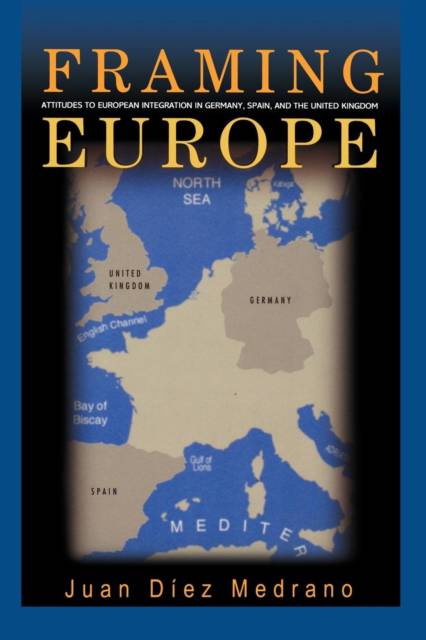
- Retrait gratuit dans votre magasin Club
- 7.000.000 titres dans notre catalogue
- Payer en toute sécurité
- Toujours un magasin près de chez vous
- Retrait gratuit dans votre magasin Club
- 7.000.0000 titres dans notre catalogue
- Payer en toute sécurité
- Toujours un magasin près de chez vous
Framing Europe
Attitudes to European Integration in Germany, Spain, and the United Kingdom
Juan Díez Medrano
70,95 €
+ 141 points
Description
This book provides a major empirical analysis of differing attitudes to European integration in three of Europe's most important countries: Germany, Spain, and the United Kingdom. From its beginnings, the European Union has resounded with debate over whether to move toward a federal or intergovernmental system. However, Juan Díez Medrano argues that empirical analyses of support for integration--by specialists in international relations, comparative politics, and survey research--have failed to explain why some countries lean toward federalism whereas others lean toward intergovernmentalism.
By applying frame analysis to a unique set of primary sources (in-depth interviews, newspaper articles, novels, history texts, political speeches, and survey data), Díez Medrano demonstrates the role of major historical events in transforming national cultures and thus creating new opportunities for political transformation. Clearly written and rigorously argued, Framing Europe explains differences in support for European integration between the three countries studied in light of the degree to which each realized its particular "supranational project" outside Western Europe. Only the United Kingdom succeeded in consolidating an empire and retaining it after World War II, while Germany and Spain each abandoned their corresponding aspirations. These differences meant that these countries' populations developed different degrees of identification as Europeans and, partly in consequence, different degrees of support for the building of a federal Europe.Spécifications
Parties prenantes
- Auteur(s) :
- Editeur:
Contenu
- Nombre de pages :
- 344
- Langue:
- Anglais
- Collection :
- Tome:
- n° 44
Caractéristiques
- EAN:
- 9780691146508
- Date de parution :
- 24-01-10
- Format:
- Livre broché
- Format numérique:
- Trade paperback (VS)
- Dimensions :
- 156 mm x 234 mm
- Poids :
- 489 g

Les avis
Nous publions uniquement les avis qui respectent les conditions requises. Consultez nos conditions pour les avis.






